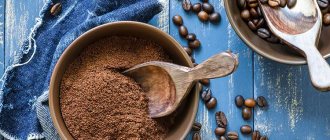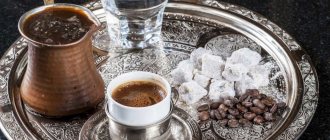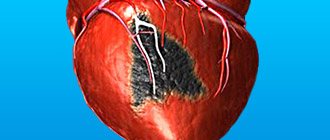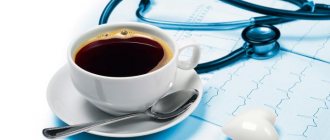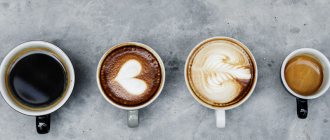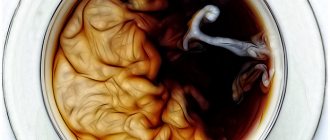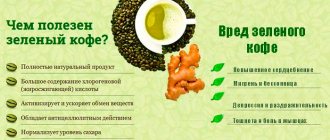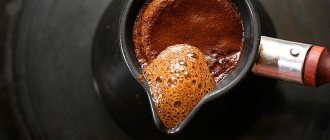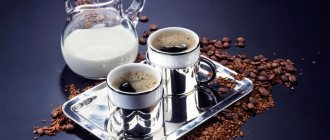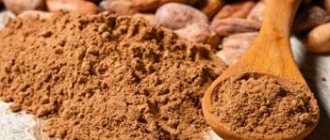Many people take tablets not only with plain water, but also with tea, coffee, juices, milk, and soda. Any drinks that are on hand. However, in most cases this cannot be done. Read below to learn why many medications should be taken only with water, and which medications should never be taken with other drinks.
Why do many medications need to be taken with only water?
What is regular water? H2O is a neutral substance that nevertheless serves as an excellent medium for chemical reactions between many other compounds. Of course, tap or bottled water, even if passed through a filter, can hardly be called absolutely pure. Impurities are still present in it, but in small quantities - they practically do not affect the effects of the drugs.
Juices, teas, compotes and other drinks are certain substances dissolved in water. They give it taste, color, and make it sweet. These substances may interact with some medications. The result can be different: the drug may begin to act stronger or weaker, change its effect, or even become toxic. And sometimes nothing special happens.
When is the best time to drink tea?
Nutritionists agree that tea can only be drunk 30 minutes after eating. This also applies to all other drinks. During this time, the food will have time to leave the stomach, and all its beneficial elements will have a beneficial effect on the body. And most importantly: during this time, gastric juice will be able to fully do its job. As a result, you will receive all the valuable substances, both from the food you consumed and from the tea.
During these 30 minutes, you can remove the plates after meals, put beautiful cups on the table and brew your favorite tea. Turn your usual tea drinking into an interesting pastime and truly enjoy the drink. You can enrich your tea with herbs or fruit and berry additives. Buy a French press if you have only used tea bags before. It will give you the opportunity to experiment with taste and aroma.
Let there be several types of tea in your home. For example, to wake up and invigorate, drink white or green tea, and to relax and sleep quickly, give preference to drinks with a minimal amount of caffeine.
Tea and coffee
Tea contains tannins - substances with tanning properties. They negate the effect of many medications. For example, tea neutralizes the effect of oral contraceptives, forms precipitated compounds with iron, and interferes with the absorption of certain drugs. The effect of antidepressants, on the contrary, is enhanced: if you take them with tea, you may experience too much excitement and insomnia.
Coffee contains caffeine, a substance that is itself a drug and can interact with other medications. In some cases, the medicine begins to act weaker, while in others, on the contrary, its effect increases (a striking example is painkillers). In combination with coffee, painkillers and anti-inflammatory drugs have a stronger toxic effect on the liver, kidneys, and heart.
Maybe some seagull?
Using coffee and tea to quickly swallow medications is also not beneficial. Firstly, the tannins found in these drinks, when interacting with the components of many drugs, form a sediment. Secondly, this combination can have a bad effect on the heart. In particular, this applies to nitrogen-containing drugs: papaverine, codeine, caffeine, aminophylline, cardiac glycosides.
The effect of coffee on medications is even more unpredictable than the effect of tea. In some cases, it inhibits the effect of drugs, and in others, on the contrary, it enhances the effect. Thus, while taking painkillers such as citramon and aspirin and large portions of coffee, the condition of the liver and other organs may worsen.
However, the wrong combination of medicine and drink will not necessarily lead to poisoning, but may simply reduce the expected effect of the drug. Which in the case, for example, with oral contraceptives is not so harmless. It is known that by drinking contraceptive medications with tea or even a decoction of medicinal herbs (for example, St. John's wort), you can achieve not quite the effect that you expected.
Antiulcer drugs (cimetidine, ranitidine), heart medications, iron supplements, enzymes and some antibiotics should not be taken with milk. At the same time, the fat contained in this wonderful product promotes better absorption of fat-soluble vitamins (D, E, K, A), iodine preparations, as well as indomethacin or reserpine.
Juices
Organic acids in fruits react with medicinal substances, changing their chemical structure and effects. As a result, the drugs begin to exhibit more toxic properties, to the point that they can cause poisoning. But the effect of antibiotics in fruit juices, on the contrary, slows down. They reduce and neutralize the effects of some drugs.
A special note about grapefruit juice is that it can interact with more than 50 different medications, including statins, which are used to lower blood cholesterol levels. While you are taking the medicine, you should not drink grapefruit juice at all, as its effects last for 24 hours.
Pomegranate juice contains an enzyme that can break down some high blood pressure medications.
Tea
This beloved drink has more than once become a companion for medications in our body. But, if in tandem with ginger cookies and sweet jam it creates an excellent duet, then in the situation with medicines everything is not so good.
The thing is that tea has a high tannin content. This component forms insoluble compounds that interfere with the effective absorption of medications. These include drugs that activate digestive processes, intended for the treatment of stomach ulcers and gastritis, cardiovascular drugs, as well as alkaloids.
It is strictly forbidden to take antidepressants with tea, because their effect in this case will be completely opposite. Instead of the desired calm and tranquility, you will only get overexcitement. Therefore, we do not recommend that you mix this drink with any medications.
.
Should I take the tablets with coffee or not?
Doctors do not recommend resorting to such actions. It is best to take medications with still, clean water.
Scientists have not yet fully studied the mechanism of interaction between drinks containing caffeine and medications. There have been no serious studies on this topic. To avoid negative consequences, the medicine should be taken with water, and coffee should be drunk some time after this.
Some drugs are recommended to be combined with milk. Due to this, the effect of taking them is enhanced.
Before starting therapy, you should read the instructions for each medication.
Can I drink coffee while taking antibiotics?
The decision about the possibility of consuming drinks containing a natural stimulant while taking antibiotics is made by the doctor. This is due to the fact that drugs in this group can have different effects. Their compatibility with caffeine will differ.
An alkaloid can enhance the effect of medications used or stimulate their rapid elimination from the body
You cannot consume coffee and antibiotics of the penicillin group, as well as Erythromycin, at the same time. Caffeine leads to a weakening of their effect. Accordingly, the treatment will not give the desired result.
Certain antibiotics reduce the rate of breakdown of the natural stimulant. It remains in the body for a longer period, causing headaches, tachycardia, and excessive nervousness. Among these medications are:
- Ciprofloxacin;
- Sparfloxacin;
- Norfloxacin;
- Grepafloxacin;
- Enoxacin;
- Trovafloxacin.
Coffee can enhance the effect of medications or reduce it to zero. Therefore, it is strongly not recommended to take medications with this drink. It is better to use water for this purpose. Thanks to this, unwanted consequences will be avoided. In addition, the treatment will be more effective.
What kind of coffee can you drink with antibiotics?
Freshly ground coffee is most beneficial.
The effects of caffeine should only be taken into account when consuming a natural product. A small amount of the alkaloid may still be present in high-quality instant coffee. Other drinks during treatment with antibiotics are undesirable, since the side effects of medications are indigestion, dysbacteriosis, increased acidity of gastric juice, and gastritis. Instant coffee products work in a similar way.
It is important to discuss the possibility of drinking coffee with your doctor, since the drink is not compatible with all medications. You also need to clarify how long after taking the medicine and with what additives you can take it. Many medications need to be taken only once a day or have a short half-life, then drinking coffee some time before or after taking an antibiotic is not prohibited.
Important! Do not take the medicine with coffee unless it is recommended by a doctor. In most cases, the drink is prohibited; sometimes it is permissible to drink a natural, freshly brewed or high-quality instant product.
Coffee with milk and antibiotics
It is necessary to take into account the compatibility of the active substance of the drug and milk. In most cases, the product is not recommended or prohibited for antibacterial treatment. It is advisable to check with your doctor or pharmacist about each specific medication.
What medications should not be used with:
- penicillin series - the medicine is absorbed worse;
- tetracycline series - calcium from milk binds to the components of the drug in the form of sediment, preventing the absorption of the active substance into the blood;
- azithromycin and analogues are poorly absorbed, the effect becomes weaker;
- drugs for the treatment of respiratory and genital infections – effectiveness decreases.
Pills and alcohol
I would like to remind you: when taking medications, you should avoid alcohol. At all! Because when taking many tablets, the effect of alcohol on the body becomes deadly.
Under no circumstances should the following tablets be taken with alcoholic beverages:
- Tranquilizers, psychotropic and neuroleptics.
- "Clonidine" and drugs that sharply lower blood pressure.
- Beta blockers.
- Anticoagulants.
- Insulin and drugs for diabetics.
- Antibiotics.
- Vitamins B, C and folic acid.
Coffee and drugs affecting the nervous system
Nowadays, a variety of sedatives, as well as drugs that sharpen thinking abilities, are very popular. One of these medications is Phenibut. The drug has a mild sedative effect, which is why it is considered relatively harmless. It is often prescribed for neuroses and chronic fatigue syndrome.
Sometimes patients wash down Phenibut with coffee according to the principle “you can’t spoil porridge with butter”: caffeine also promotes clarity of thinking. But if Phenibut calms and treats insomnia, caffeine, on the contrary, invigorates. As a result, the two substances block each other’s actions, and which one will win depends on the individual characteristics of the organism.
Not only are Phenibut and coffee incompatible - any drug that affects the nervous system should not be taken with a caffeinated drink. If the medicine is calming, caffeine reduces the therapeutic effect. If the drug invigorates, then the nervous system receives something like a “whiplash”, and from here it’s not far to neurosis.
How to drink tea correctly
If we notice that our eating habits are having a bad effect on our well-being, then it’s time to change something. To prevent tea from becoming a useless or even unhealthy drink, you should not drink it on an empty stomach or drink it with food.
If you regularly drink it in the morning, you will provoke the development of gastritis and slow down the functioning of the pancreas. It takes at least 30 minutes for the digestive system to process the incoming food. But still, the optimal time period is 1 hour. This applies to both green and black tea. A few more rules:
- Don't drink tea that is too hot or cold. In the first case, irritation of the esophagus occurs, in the second, metabolic processes slow down. Permissible temperature is 56 degrees.
- Do not take medications with them, as this will make them difficult to absorb.
- Do not use yesterday's tea leaves, try to always drink freshly brewed tea.
You have learned several rules for drinking tea. Try to follow the suggested recommendations, set up the correct drinking regimen, and then you can truly help your body. The quality of food digestion will improve, metabolic processes will improve, and you will feel great.
Coffee and aspirin
The latest “fashionable” discovery by American scientists is caffeine with aspirin for hangovers. Some articles call for taking aspirin and coffee the next morning, others - 4 hours after the feast.
It is unknown what the actual results of the experiment were, but the media should not be trusted. Journalists confuse two conditions: poor health due to alcohol poisoning, and the actual hangover, when a patient with alcoholism wants to “improve” their health with another portion of alcohol.
Taking aspirin and coffee will bring relief only in the first case. In theory, everything is logical. Aspirin thins the blood, and caffeine helps remove toxins from it. But what price will the body have to pay?
Aspirin irritates the gastric mucosa and creates additional stress on the liver, which is already busy neutralizing ethanol breakdown products. In addition, the medicine flushes vitamins B and C from the body. A temporary improvement in well-being may eventually result in serious liver disease. To eliminate the consequences of alcohol intoxication, just coffee is enough, and only if your blood pressure is not elevated.
